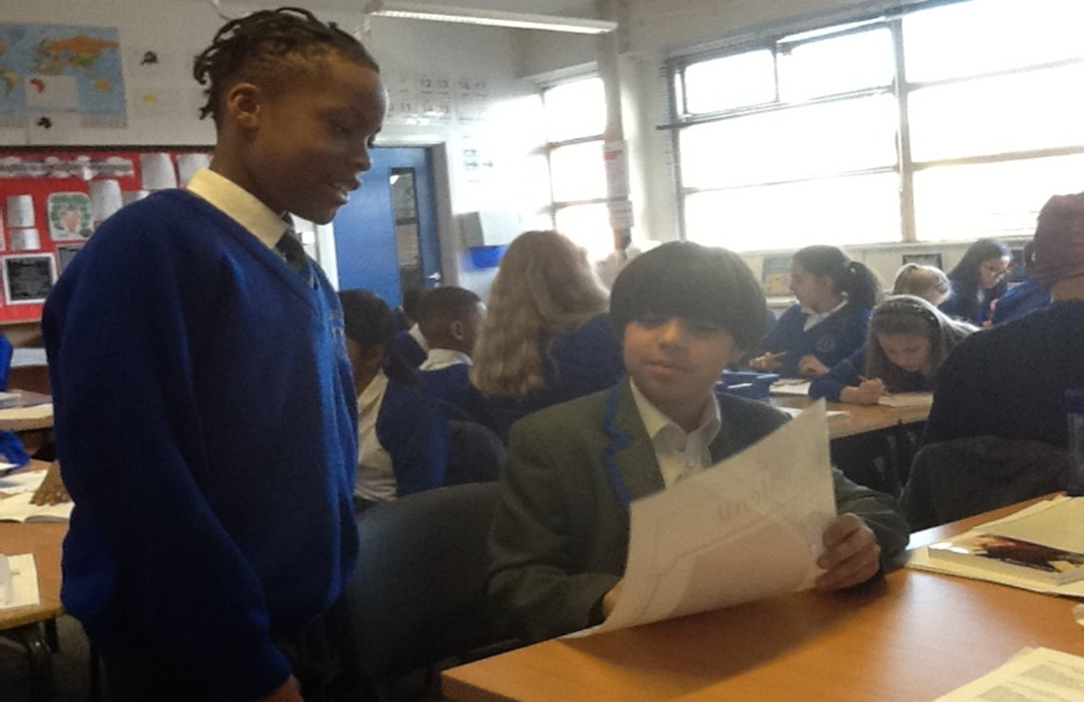French
In French, we intend to promote the teaching and learning across the school to lay the foundations for learning further languages and equipping learners to study and work in other countries.
Listening and responding
- The students show they understand a range of familiar statements and questions. They respond to a clear model of language. (Yr3)
- The students show that they understand short passages made up of familiar language. They identify specific sounds, words and phrases. (Yr 4)
- The students show that they understand short passages made up of familiar language. They identify and note main points and personal responses. (Yr 5)
- The students show that they understand longer passages made up of familiar language in simple sentences spoken at near normal speed. They identify and note main points and some details. (Yr 6)
Speaking
- The students give short, simple responses and use set phrases. Their pronunciation may still be approximate but their meaning is clear. (Yr 3)
- The students take part in brief prepared tasks and say several sentences on a topic. They ask and answer several questions on several topics. (Yr 4)
- The students take part in brief prepared tasks and use short sentences to express personal responses. They use memorised language but occasionally substitute items of vocabulary to vary questions or statements. (Yr 5)
- The students take part in structured conversations of at last three or four exchanges. They are beginning to use their knowledge of grammar to adapt and substitute words and phrases. Their pronunciation is accurate in general and their intonation is beginning to be consistent. (Yr 6)
Reading and responding
- The students show that they understand short texts and dialogues presented in a familiar context. They make links between spoken and written words by reading aloud single familiar words and phrases. They use books and glossaries to find out the meaning of new words. (Yr 3)
- The students show that they understand short texts and dialogues. They match sound to print by reading aloud single familiar words and phrases. They use books and glossaries to find out the meaning of new words. (Yr 4)
- The students show that they understand short texts and dialogues. They identify and note main points and personal responses. They are beginning to read independently and to use bilingual dictionaries and glossaries to look up new words. (Yr 5)
- The students show that they understand short stories and factual texts printed or clearly handwritten. They indentify main points and some details. When they are reading independently or using a bilingual dictionary or glossary, they are beginning to use context to work out what unfamiliar words mean. (Yr 6)
Writing
- The students copy familiar phrases correctly. They write simple words and phrases using a model and some words from memory. Their spelling may be approximate when writing familiar words from memory. (Yr 3)
- The students copy familiar phrases correctly. They write or produce items and set phrases used regularly in class. Their spelling may be approximate when writing familiar words from memory. (Yr 4)
- The students write two or three short sentences on familiar topics with support and they express personal responses. Their spelling is readily understandable when writing short phrases from memory. (Yr 5)
- The students write short paragraphs of about three or four simple sentences (mainly from memorised language). They are beginning to use their knowledge of grammar to adapt words and set phrases. They are beginning to use dictionaries and glossaries to check words they have learnt. (Yr 6)

Year 5 used the sentences and vocabulary they learnt to role play with a partner pretending to be in a French café
Resources required:
- Bilingual stories French / English
- Online listening, reading and writing resources website for French and EAL: Linguascope (Unlimited number of students and access from school and home. Annual subscription: £300)
